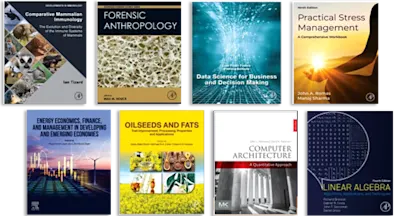
Environmental and Pollution Science
- 3rd Edition - March 19, 2019
- Imprint: Academic Press
- Authors: Mark L. Brusseau, Ian Pepper, Charles Gerba
- Language: English
- Paperback ISBN:9 7 8 - 0 - 1 2 - 8 1 4 7 1 9 - 1
- eBook ISBN:9 7 8 - 0 - 1 2 - 8 1 4 7 2 0 - 7
Environmental and Pollution Science, Third Edition, continues its tradition on providing readers with the scientific basis to understand, manage, mitigate, and prevent pollut… Read more
Purchase options

- Emphasizes conceptual understanding of environmental systems and can be used by students and professionals from a diversity of backgrounds focusing on the environment
- Covers many aspects critical to assessing and managing environmental pollution including characterization, risk assessment, regulation, transport and fate, and remediation or restoration
- New topics to this edition include Ecosystems and Ecosystem Services, Pollution in the Global System, Human Health Impacts, the interrelation between Soil and Human Health, Environmental Justice and Community Engagement, and Sustainability and Sustainable Solutions
- Includes color photos and diagrams, chapter questions and problems, and highlighted key words
- Edition: 3
- Published: March 19, 2019
- Imprint: Academic Press
- Language: English
MB
Mark L. Brusseau
IP
Ian Pepper
Dr. Ian Pepper is a Regents Professor at the University of Arizona and also the Director of the University of Arizona Water and Energy Sustainable Technology Center (WEST). He is an environmental microbiologist whose research has focused on the fate and transport of microbial pathogens in air, water, soils and municipal wastes. His expertise has been recognized by membership on six National Academy of Sciences Committees. Dr. Pepper is a Fellow of the American Association for the Advancement of Science, the American Academy of Microbiology, the Soil Science Society of America, and the American Society of Agronomy. He is the author or co-author of seven textbooks and over 200 peer-reviewed journal articles.
CG
Charles Gerba
Dr. Charles Gerba is a Professor at the University of Arizona. He conducts research on the transmission of pathogens through the environment. His recent research encompasses the transmission of pathogens by water, food and fomites; fate of pathogens in land applied wastes; development of new disinfectants; domestic microbiology and microbial risk assessment. He has been an author on more than 500 articles including several books in environmental microbiology and pollution science. He is a fellow of the American Academy of Microbiology and the American Association for the Advancement of Science. In 1998 he received the A. P. Black Award from the American Water Works Association for outstanding contributions to water science and in 1996 he received the McKee medal from the Water Environment Federation for outstanding contributions to groundwater protection. He received the 1999 Award of Excellence in Environmental Health from National Association of County and City Health Officials.